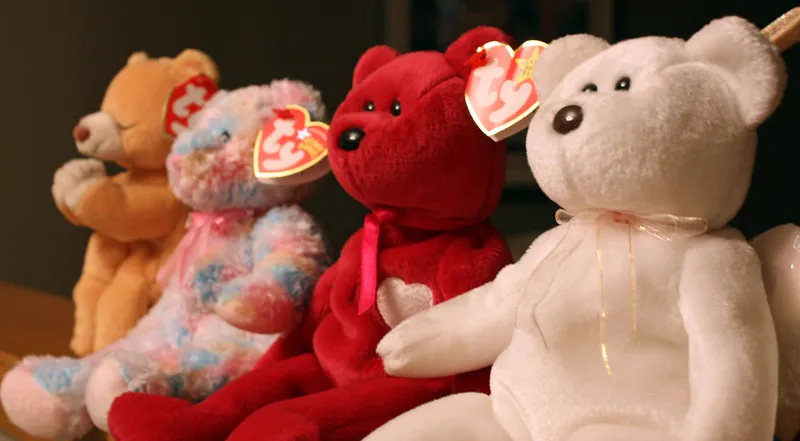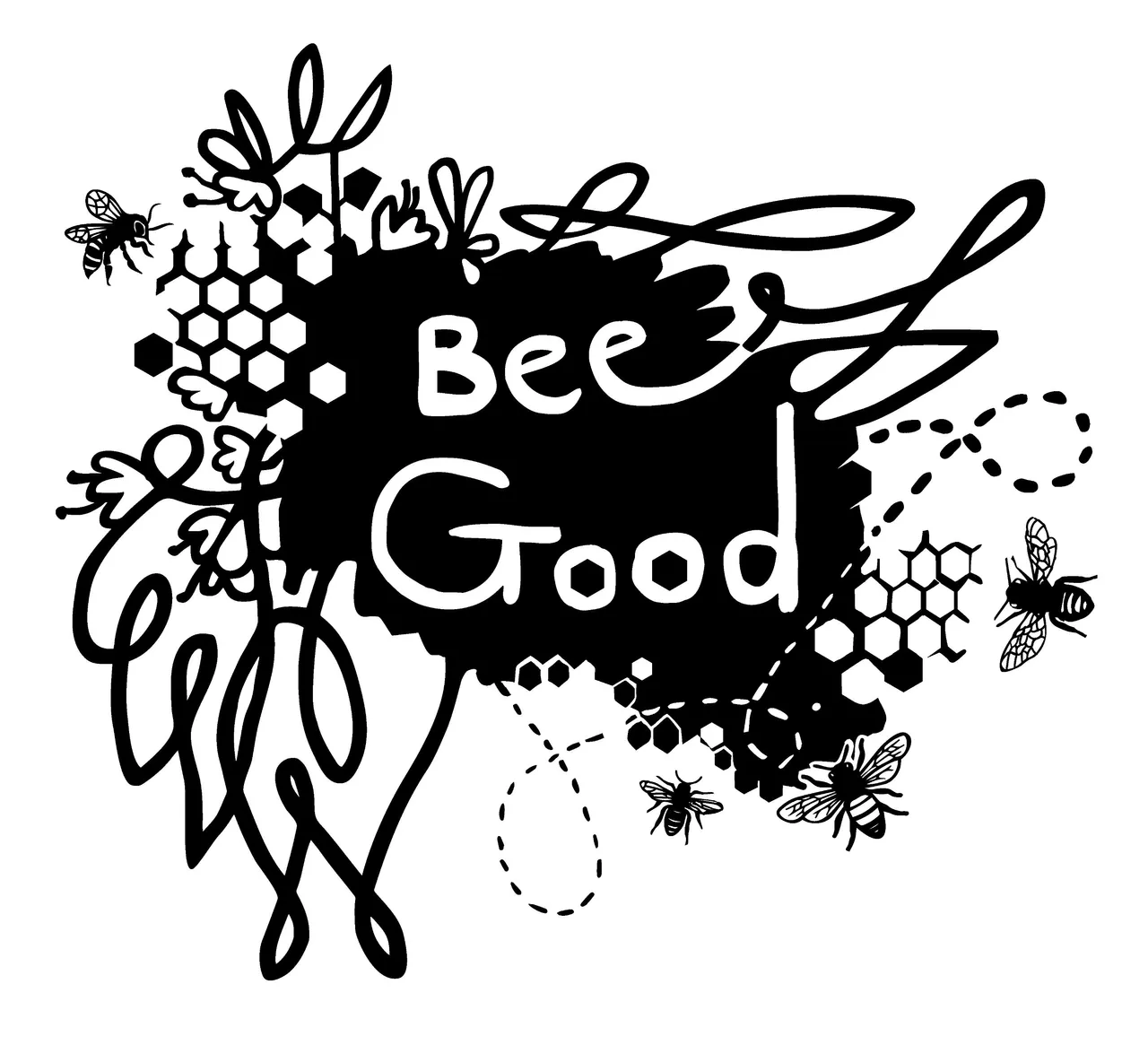People who are freaking out about NFTs are too young (or not American, as I think it was just a US thing) to remember the Beanie Babies Bubble in the 90s.
Let me explain (I promise, people who like your NFTs, I am not trying to yuck on your yum).

Source: Dominique Godbout on Flickr
I am not here to speak on the potentiality of smart contracts, the tech, or things like that - generally I think that's all cool, and people who hate on NFTs don't understand that aspect of it at all. I am just speaking to the hype (or hate) train that is all over social media (and regular media) of late.
Also, we all know that POW coins are energy guzzlers and that's a problem, which is one of the reasons why I prefer our POS system here at Hive (toot!), so the ETH blockchain (where most NFTs are) being POW is again, not the issue I'm talking about here. I'm just talking about crazes about "collectibles."
So if you were old enough to remember the late 90s from more than a childhood perspective and you were in the US, you might remember Beanie Babies. If you're unfamiliar, Beanie Babies are little beanbag-type dolls of cute little animals, like the bears in the photo above.

Source: just a clip from a google search for "beanie babies"
As you can see, there are some Beanie Babies where the seller is asking for A LOT OF MONEY. Why? Because in the 90s, when ebay was new, people suddenly went CRAZY for Beanie Babies. People were raiding stores like they do on black Friday every time there was a new release. MacDonald's had Beanie Babies Happy Meal toys, and people were buying up Happy Meals. For some of these people, they were just collecting them because they enjoyed them - and that's totally fair. I think if you are a collector of things that are just your interest, you probably have the healthiest relationship to "collectables" (your bank account may disagree after you indulge, but that's another matter).
Someone who collects comic books or Star Wars action figures or baseball cards or Funko Pops or whatever just because they enjoy them, is totally fine. That's your thing that you like, and you're enjoying yourself. Maybe someday that comic you've kept since childhood will be worth a lot of money and you sell it and enjoy the windfall, but if you would have collected it anyway, then you have a healthy relationship to it. You got joy out of it even if you never became a surprise millionaire from your mint condition Millennium Falcon Legos, or whatever. Again, maybe your spouse or your parents wish you would "be more responsible with your money" and think your collection is silly, but they've got their Precious Moments figurines or an anime collection or whatever that they like, so it's all relative for the most part.
The difference comes when people think that by collecting an unpredictable "collector's item," usually toys, that they are funding their future retirement.

Source: Business Insider on YouTube
Now, there are legitimate problems where thieves are stealing other people's artwork and selling it as an NFT, and that's obviously not OK and I'm sure (I hope?) that the techie-inclined coders who build these systems are working on ways to stop that from happening. There are also people who are just taking any random thing and turning it into an NFT, hoping to cash in on the craze (maybe not a crime, but I doubt those ones are going to be worth tons of money someday).
There are some artists who are finally getting paid by selling their art as NFTs and I think that's great; it's wicked hard to earn a living as an artist and if you suddenly, finally have an income you can live off of, or even just help pay your bills, congrats! If you're buying an NFT from these artists because you want to support them and you like their work (and maybe it will, or won't, increase in value someday but you're not going bankrupt if it doesn't), great! If you're buying a HiveFolks because you think they're fun and you can afford it and would like to collect the ones of your favorite Hivers (or your mom - hey @ecoinstant, did you ever get a Snook?), right on! Again, I'm not yucking on your yum at all if you're enjoying it even if you don't become a surprise millionaire.
But there are probably some people who are buying any old NFT simply because it's an NFT, and they think, much like people thought about Beanie Babies in the 90s, that it was a surefire investment and they could retire or pay for their kids' college someday with it! This is where you have to be careful, my friends.
There are no guarantees. There is a lot of FOMO and hype going on right now and maybe you can turn a quick profit, but also maybe the market crashes tomorrow and we head into another crypto winter and your thousand-dollar NFT is now worth approximately bupkis. Just like people doing this in the 90s were sometimes left holding a bag (or a basement!) full of dolls, you might be left holding a bag of NFTs that couldn't fund your month's rent, let alone your kids' college.
NFTs are new and shiny right now, and I think as the market matures and more use cases for them become commonplace, the "craze" aspect will mellow out and the more level-headed "this is a useful technology" or "I'm a collector who likes this art" users will dominate over the "I bought a thousand Beanie Babies because what could go wrong" type of mindset.
So, ya know, this is not financial advice, etc., but if it were me, I wouldn't invest anything I couldn't afford to lose. And if I had the funds, I would maybe collect one from an artist I liked just because I wanted to support that artist, or something that I would be happy to have bought even if I did not become a surprise millionaire. The reason why those surprise millionaires are millionaires, after all, is because that thing that they managed to keep for decades is rare and people still have an interest in it. Usually no one at the time even considered that it might be valuable someday, as my dad often laments about the baseball cards he had as a kid that he traded away and stuck in bicycle spokes, that are now worth a mint. The baseball cards I had as a kid? Now worth approximately bupkis, because back in the 80s and 90s they were becoming a "thing" to collect and so the baseball card makers printed too many and saturated the market. The only ones who profited from those cards were Topps and Fleer and Donruss, for the most part. Were Topps and Fleer and Donruss "evil" for making all those cards that inevitably some people bought just for the "investment"? Was Ty (the company that makes Beanie Babies) evil? I mean, we can argue that the profit motive by itself is an evil upon the world and I'd be inclined to agree with you, but we're all still existing in this system right now where you need money for life's necessities, like food and shelter. I certainly don't think that a (legitimate, not a thief) artist selling some NFTs of their work is some evil, Ponzi-scheme mastermind. They're just surviving in the world, like everyone else.
Tl;dr be safe out there, y'all, and enjoy your (real, not stolen) art. But don't bet the farm on it. ;)
